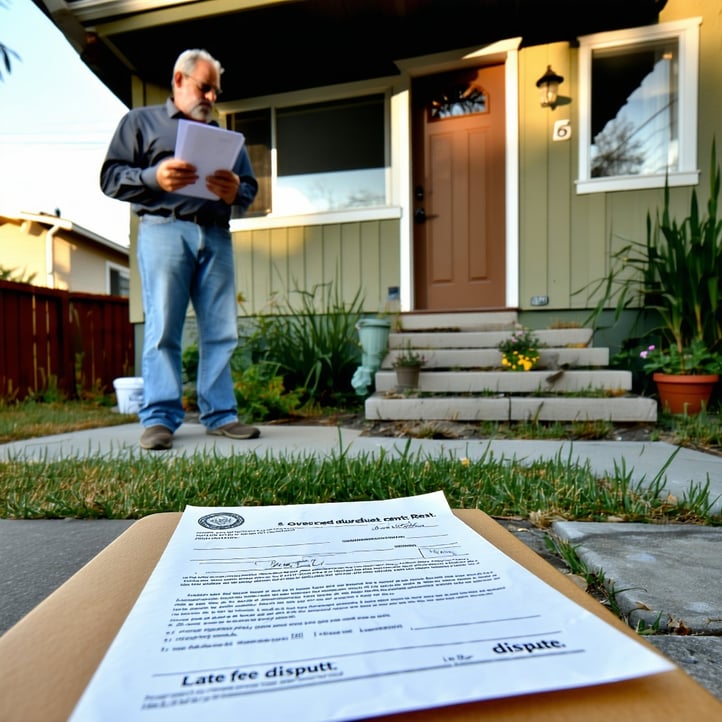If you own a rental property in Carlsbad, Encinitas, Oceanside, or anywhere in North County San Diego, there's a critical California law you need to understand especially when a state of emergency is declared. It’s called Penal Code Section 396, and it limits how much you can increase rent during emergencies. At Raintree Property Management, we guide our clients through these legal requirements every day. Here’s a breakdown to help you stay compliant and protect your investment.
What Is California’s Anti-Price Gouging Law?
California’s anti-price gouging law prohibits increasing the price of essential goods and services — including rental housing — by more than 10% following the declaration of a state of emergency.
That means whether you’re renting out a condo in Encinitas or a single-family home in Carlsbad, you can’t raise the rent by more than 10% unless you meet specific exceptions.
And it doesn’t just apply to new leases. It also applies to existing tenants, meaning you can’t issue a lease renewal or notice of rent increase above that cap during a covered emergency period.
When Does the Anti-Price Gouging Law Apply?
This law kicks in immediately after a state of emergency is declared. And it's important to know:
- A state of emergency can be declared by the Governor, the President, or even local city or county officials.
- Emergencies triggering the law could be wildfires, storms, floods, pandemics, or other disasters.
- Sometimes emergencies last far longer than you'd expect. For example, California was under a price gouging protection for years due to the COVID-19 pandemic and still has some active orders due to other emergencies like the bird flu.
No. While a local emergency might be declared for a specific area, California’s Attorney General has clarified that the impact of a state of emergency can extend beyond local borders. If demand increases in your area because of a nearby disaster, the 10% cap could still apply, even if no emergency was declared specifically in your city. If you’re unsure whether your Carlsbad, Encinitas, or Oceanside property is affected, you need to check active emergency declarations before raising rents.
How Long Does the 10% Cap Stay in Effect?
Initially, the cap is in place for 30 days. However:
- Local governments can renew it every 60 days.
- The Governor can extend it through executive orders — sometimes for months or even years.
- We always recommend treating the 10% cap as ongoing until you confirm in writing that the emergency and price controls have ended.
How to Calculate the 10% Cap
It’s not always straightforward. Here’s how it generally works:
- If your unit was rented at the time of the emergency, your "base rent" is what the tenant was paying before the emergency.
- If the unit was vacant, the base rent is what you were advertising it for prior to the emergency.
- If the unit wasn’t listed or rented at all before the emergency, you may use 160% of the HUD Fair Market Rent for your area.
- You must be careful with each calculation. Violations can happen even if you didn’t intend to overcharge.
What Happens If You Violate the Law?
Violating California’s anti-price gouging law is serious:
- It’s a misdemeanor, punishable by up to one year in jail and/or a fine up to $10,000.
- You could also face civil lawsuits under California’s unfair competition laws.
- Local governments may impose their own additional penalties.
Exceptions to the Rule
There are limited circumstances where you may increase rent by more than 10% during a state of emergency, but you must meet strict requirements:
- Major renovations or repairs: If you have legitimate new costs that are clearly documented and amortized over the rental term, you may be able to justify a higher increase.
- Pre-existing agreements: If the tenant signed a lease before the emergency was declared, and that lease calls for a higher rent increase, it may be allowed.
These exceptions are narrow and complicated. We always recommend consulting an attorney before attempting to raise rent beyond 10% during a declared emergency.
Other Things You Should Know
- Short-term leases aren't exempt. You can’t bypass the law by offering short-term leases at higher rates.
- Local ordinances may be stricter. Cities and counties can impose their own anti-price gouging rules, and some areas in North County San Diego have done so during past disasters.
- Evictions are still allowed, but you can’t evict a tenant simply to charge a new renter a higher price that would violate the law.
Before adjusting any rents, you must consider all ongoing emergencies — not just the most recent one. Overlapping emergencies can affect how much you can legally raise the rent.
How We Help North County San Diego Landlords Stay Compliant
At Raintree Property Management, we stay on top of every active state of emergency and price gouging rule, so our clients don’t have to.
When you work with us, you get:
- Accurate rental pricing recommendations
- Compliance with California’s complex rent control and emergency laws
- Peace of mind that you won’t be caught off guard by a costly mistake
- We protect your property — and your reputation.
Final Thoughts
California’s price gouging protections are designed to help renters during difficult times, but they also place significant responsibilities on landlords. Whether you own a single-family home in Carlsbad, a condo in Encinitas, or a duplex in Oceanside, the 10% cap can directly impact your rental income strategy.
If you're unsure whether you can raise your rent — or want help setting the right rent the legal way contact Raintree Property Management.
👉 Click here to request a free rental analysis and learn how we help rental owners across North County San Diego stay profitable, protected, and fully compliant.




